Networking Activities (NA)
Validating smart grid technologies and developments is a task that requires a holistic view on the overall process. The entire domain spectrum of future smart grids has to be taken into consideration. Besides the technical components, such as the grid infrastructure, storage, generation, consumption, etc., it also comprises customers, markets, ICT, regulation, governance, and metrology to name a few. A holistic approach demands integrating all prospective R&D sites and stakeholders, e.g. hardware/software simulation labs as well as academic and industrial research. With this networking activity ERIGrid aims to tain the next generation of researchers and engineers.
Joint Research Activities (JRA)
A core activity in ERIGrid is the provision of a distributed and integrated research infrastructure which is capable to support the validation and testing of smart grid configurations. Overall 19 installations provided by the consortium members are available for transnational access projects.
Transnational Access (TA)
ERIGrid targets industrial and academic researchers active in the smart grid domain and provides them free transnational access (TA) to the integrated research infrastructure of the ERIGrid members. This access is funded by the project and is therefore offered free of charge to researchers planning to carry out research projects at a high level of excellence and innovation. The projects submitted by industrial and academic researchers will have to tackle challenging scientific and complex technical impacts. The consortium organises two calls for proposals yearly. You can find out more about the ERIGrid Transnational Access here.
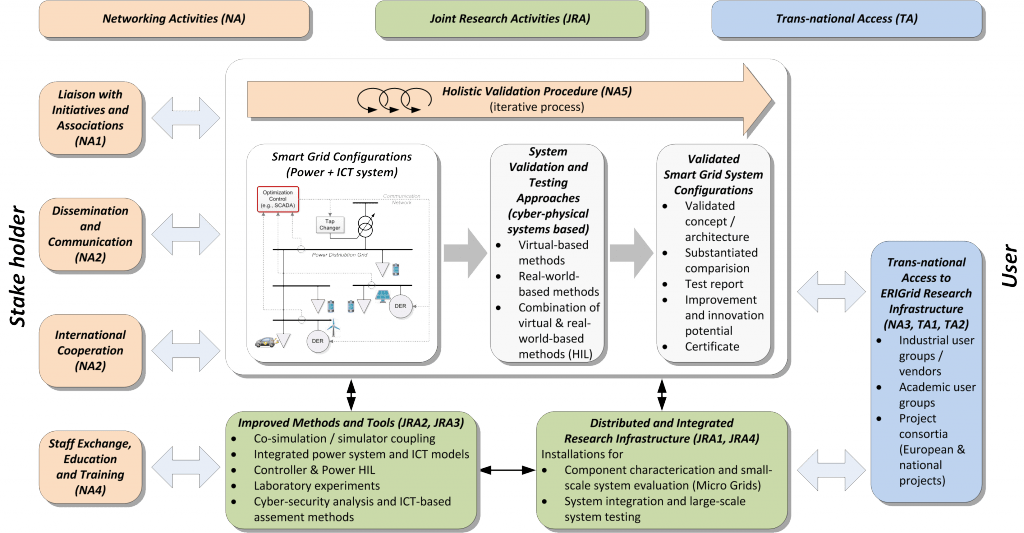
WP1 – Project Coordination and Management
![]() Leader: AIT
Leader: AIT
This work package deals with the implementation and maintenance of an effective administrative and management infrastructure of ERIGrid throughout all phases, including effective internal procedures, communication, reporting and meetings. A focus is on the successful management and coordination of the project by objectives in regards to time, budget, legal and contractual issues. Moreover, an efficient risk-, quality, and change management will be implemented.
Networking Activities (NA) Work Packages (WP2 – WP6)
WP2 – NA1 – Innovation and Exploitation Management
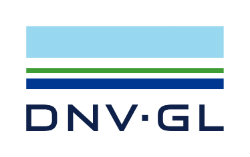 Leader: DNV GL
Leader: DNV GL
Partners involved: AIT, CRES, DERlab, OCT, OFF, RSE, TEC, UST, VTT, HED
This work package aims at the coherent management of innovations occurring from ERIGrid supporting the Smart Grid systems technology development, validation as well as the future large-scale roll out. Innovation related activities will generate a strategy for use and handling of (commercially) sensitive results and will serve identification of future market perspectives of gained results and create awareness of the results for the European power systems industry. Moreover, the international collaboration with relevant associations, research and industry institutions related to validation and testing of Smart Grid systems is planned. Additionally liaison with different international standardisation bodies and technical committees will be conducted.
WP3 – NA3 – Organisation and Management of Transnational Access User Projects
Partners involved: AIT, CEA, CRES, DERlab, DNV GL, DTU, ICCS, OCT, OFF, RSE, TUD, UST, VTT
The focus of this WP is on the organisation and management of the trans-national access of external user groups. It includes the development of calls, the evaluation and selection of access projects, the development of the users stay rules, as well as the dissemination of the corresponding user project results. ERIGrid transnational access will be implemented in a coordinated way. A single entry point will be made available. The calls for proposals, application forms/templates and proposer guidelines will be centralised at the ERIGrid web site. The site will provide all the information to address the different needs of users, including the administrative procedures to be followed to apply, the detailed descriptions of the infrastructures capacities, and the information on past and current user projects (fact sheets, unrestricted technical reports); basically, through the web site the users will be accompanied during the entire access process, from the project proposal to the dissemination of the project results.
WP4 – NA4 – Training/Education of Power Systems and ICT Professionals, (Young) Researchers, Students and Staff Exchange
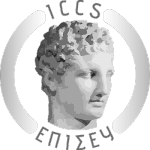 Leader: ICCS
Leader: ICCS
Partners involved: AIT, CRES, DTU, GINP, IEE, OFF, TUD, UST, HED
The focus of this work package is on the education on Smart Grid systems (Smart Grid operation, validation / testing, roll out scenarios) and staff exchanges between the project partners. It focuses on exposing power systems and ICT professionals, young researchers and students to the concept of Smart Grids and the benefits that it offers such as reliability, efficiency and sustainability of the electrical energy system, and assist them to create new solutions for the emerging challenges.
In this framework several activities like PhD workshops, summer schools, webinars, etc. will be organised and disseminated widely. Furthermore, through staff exchange of the industrial and academic researchers of the ERIGrid partners it will be possible to share infrastructures and create strong collaborations.
WP5 – NA5 – Holistic System Integration and Testing Procedure
Leader: OFF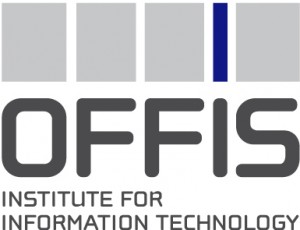
Partners involved: AIT, CEA, CRES, DERlab, DNV GL, DTU, GINP, ICCS, IEE, OCT, RSE, SIN, TEC, TUD, UST, VTT, HED
The focus of this work package is on the development and harmonization of an integrated, holistic validation and testing procedure for Smart Grid configurations. Relevant information and requirements for necessary methods and tools are provided to the corresponding JRA’s. A holistic Smart Grid research and development approach not only has to address the whole development cycle (design, analysis, simulation, experimentation, testing and deployment) but also has to take into account all relevant components, facets, influences that future power systems will comprise of, which might interact with the controller, algorithm or use case in question.
WP6 – NA2 – Dissemination, Communication and International Collaboration
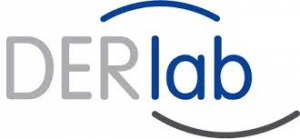 Leader: DERlab
Leader: DERlab
Partners involved: AIT, CEA, CRES, DNV GL, DTU, GINP, ICCS, IEE, OCT, OFF, RSE, SIN, TEC, TUD, UST, VTT, HED
This work package aims at the coherent dissemination and communication of non-confidential scientific results the NA’s and JRA’s to the scientific community and industry during the project execution, following the open access policy of H2020. A major focus is also on the widely dissemination of the trans-national access possibilities to external users. In addition, synchronisation of dissemination activities with other FP7 and H2020 projects as well as initiatives will be done together with the EC. Also the planned international collaboration is covered.
Joint Research Activities (JRA) Work Packages (WP7 – WP10)
WP7 – JRA1 – Use Case/Scenario Identification, Analysis and Selection
![]() Leader: VTT
Leader: VTT
Partners involved: AIT, CEA, CRES, DERlab, DTU, GINP, ICCS, IEE, OFF, RSE, SIN, TEC, TUD, UST
Different use cases and scenarios may require different validation and testing methods, infrastructures, deployment approaches and procedures. At the same time, promising solutions and services requiring such support actions are continuously evolving. Therefore, the goal of this work package is to identify relevant scenarios and use cases and to analyse them in the context of research infrastructures and simulation environments among ERIGrid partners. To support this work, this work package gathers requirements from potential users and stakeholder groups (e.g., utilities, industry, co-operation networks and technology platforms). The goal is to identify in detail which services offered by the research infrastructure have to be extended and improved as well as if new services have to be developed in order to satisfy the advanced user needs (i.e., validating Smart Grid systems).
The work will be carried out in close co-operation with JRA2 and JRA3 as the use cases and scenarios identified and selected will be used to evaluate the proposed methods and tools developed in JRA2 and JRA3.
WP8 – JRA2 – Co-Simulation based Assessment Methods
Leader: TUD
Partners involved: AIT, CEA, CRES, DNV GL, DTU, GINP, ICCS, IEE, OCT, OFF, RSE, UST, VTT, HED
This WP develops advanced simulation-based methods to check and validate given Smart Grid scenarios, configurations and applications (with focus on selections from JRA1). The main method is offline simulation of scenarios where a combination of massive parallel processing power, advanced optimisation techniques, and design-of-experiments is used to master the complexity of the parameter set. Online simulation, i.e., hardware-in-the-loop is covered in JRA3.
The JRA2 methods, however, must be prepared for this usage as well. Moreover, assessment methods for analysing ICT architectures and cyber-security concepts are also targeted. The assessment will cover the following Smart Grid properties: system stability, system scalability, component interoperability, information security. It is the goal to be able to find the operational limits and the sensitivity of these system properties towards system parameters. The models have to cover the various parts of Smart Grids like power system infrastructure, control algorithms, communication systems, market aspects or external factors like weather and people. The individual models of these parts are of very different nature (continuous, discrete, stochastic, etc.), which is why the simulation setup will be based on hybrid models and co-simulation.
WP9 – JRA3 – Integrated Laboratory-based Assessment Methods
Leader: IEE![]()
Partners involved: AIT, CEA, CRES, DNV GL, DTU, GINP, ICCS, RSE, TEC, TUD, UST, VTT, HED
The goal of this work package is to enhance the available laboratory possibilities and to develop and setup an integrated research infrastructure approach supporting system-level analysis of components and small-scale systems.The following main activities are in the focus of this joint research activity:
- Improvement of existing laboratories with ICT systems, protocols, etc. (e.g., IEC 61850, CIM, SIA, metering standards, cyber-security standards)
- Developed advanced testing scenarios and corresponding methods from a systems integration point of view
- Further development of hardware-in-the-loop methods, algorithms and necessary laboratory infrastructure (based on DERri JRA3 results) addressing Smart Grid system aspects
- Improvement of the hardware-in-the-loop approach fostering system integration tests, combining co-simulation and real setups for advanced system integration tests.
WP10 – JRA4 – Implementation and Demonstration of Use Cases/Scenarios in the Integrated Research Infrastructure(s)
Leader: RSE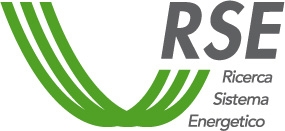
Partners involved: AIT, CEA, DTU, GINP, ICCS, IEE, OCT, OFF, SIN, TEC, TUD, UST, VTT, HED
The scope of this work package is the implementation, demonstration and validation of selected use cases in the laboratories and simulation environments made available by the ERIGrid integrated research infrastructures. Developments on simulation (JRA2) and on experimental methods (JRA3) will be implemented and validated in the partners laboratories and research infrastructures following the methodology established in NA5 and the integration procedures defined in JRA2 and JRA3 in order to demonstrate, in specific scenarios and uses cases among those elaborated in JRA1, potential and advantages of the integration and synergies of the consorted research infrastructures. Different levels of integration, with increasing difficulty, will be experienced with application to selected use cases.The demonstration and validation performed in JRA3 will allow assessing and evidencing the overall great extension of the provided installations deployment potential, coming from the integration of the single installations services. Moreover, it will help to identify possible additional developments necessary for the integrated research infrastructure in order to fully cover the future needs and requirements for industry and research.
Transnational Access (TA) Work Packages (WP11 – WP12)
WP11 – TA1 – Facilities for Improved Component Characterisation and Micro Grid Validation
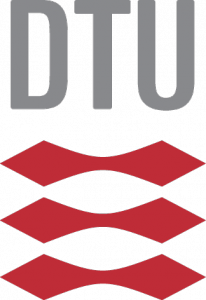
Leader: DTU
Partners involved: CEA, CRES, DTU, ICCS, SIN, TEC, UST, VTT
The main goal of this transnational access activity WP is the provision of access to facilities allowing a much more detailed characterisation of Smart Grid components as well as the testing and validation of small-scale system configurations like Micro Grids. The focus is on laboratory experiments which are more suitable for characterising components and small-scale systems but also co-simulation and HIL are also applicable. The research infrastructure will be enhanced with methods and tools developed in the corresponding networking and joint research activities during the project duration (i.e., NA4, NA5, JRA1-JRA4). In addition, a further major goal is to harmonize and integrate the distributed infrastructure provided by the ERIGrid partners.
WP12 – TA2 – Facilities for Large-Scale Smart Grid System Integration and Testing
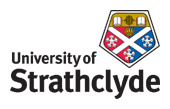 Leader: UST
Leader: UST
Partners involved: AIT, DNV GL, GINP, IEE, OCT, OFF, RSE, TUD, VTT
The main goal of this transnational access activity WP is the provision of access to facilities allowing the validation and testing of large-scale Smart Grid configurations. Therefore, the focus is on using co-simulation and HIL approaches together with laboratory equipment – if necessary – in a combined manner allowing a more detailed analysis of a specific Smart Grid configuration. The research infrastructure will be enhanced with methods and tools developed in the corresponding networking and joint research activities during the project duration (i.e., NA4, NA5, JRA1-JRA4).
